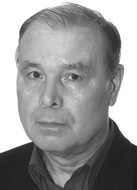Academic physical education and sports discipline: education process specifics at law universities
Фотографии:
ˑ:
Dr.Hab., Professor Sh.Z. Khubbiev1
PhD, Associate Professor N.S. Panchuk2
PhD, Associate Professor V.G. Bondarev2
Dr.Hab., Professor V.E. Smirnov2
PhD S.S. Buchnev3
1Saint Petersburg State University, St. Petersburg
2Russian State University of Justice, St. Petersburg
3Peoples' Friendship University of Russia, Moscow
The study analyses education process specifics of the academic Physical Education and Sports discipline at law universities. For success of the personality building and professional qualities cultivation service provided to the future lawyers, the academic Physical Education and Sports curriculum shall be designed to: model conflict situations in the academic team sports and active games; motivate the students for the professionally important personality qualities building with a special emphasis on the interpersonal communication skills to control stressful profession-specific situations; give due knowledge of the rules of team sports and active games; apply problem-solving technologies and conflict situation modelling and testing practices; and form constructive mindsets for the productive communication in conflict situations. The game tasks in the education process shall be designed to offer variable difficulties including: time limitations (for the situation understanding and analyzing; decision making; communication with the executive teammates; and urgent actions); intellectual problems (related to the decision options analyzing and decision-making); situational challenges (due to the situations being new and unusual); social limitations (with the tasks varied in goals and age-, gender-, status-specifics and numbers of the communicating individuals); and subjective/ individual performance limitations (due to fatigue, emotional tension etc.). In the professionally important physical skills building process, due priority in the academic Physical Education and Sports curriculum shall be given to the self-defence basics to help the future lawyers effectively act in potentially dangerous situations.
Keywords: education, physical culture, law university.
References
- Maltsev G.M. Kakoy yurist nuzhen obschestvu [The type of lawyer needed by society]. Rossiyskaya yustitsiya, 2001, no. 5, P. 69.
- Mironov A.G. Pedagogicheskie usloviya sovershenstvovaniya professionalno-prikladnoy fizicheskoy podgotovki buduschikh yuristov na osnove primeneniya aykido [Educational conditions for improving practical professional physical training of future lawyers based on aikido]. Obrazovanie i samorazvitie, 2011, vol. 5, no. 27, pp. 64-69.
- Panchuk N.S., Khubbiev Sh.Z., Smirnov V.E. et al Osobennosti realizatsii programmy professionalnoy perepodgotovki ‘Prepodavatel fizicheskoy kultury i sporta vysshey shkoly’ [Features of implementation of professional retraining program "Physical Education and Sports Teacher in higher education”]. Teoriya i praktika fiz. kultury, no. 10, 2017, pp. 8-10.
- Khubbiev Sh.Z., Lukina S.M., Khismatullin S.A. et al Kontseptsiya podgotovki v SPbGU bakalavrov po napravleniyu «Fizicheskaya kultura» [The concept of training bachelors in Physical Education at St. Petersburg State University]. Teoriya i praktika fiz. kultury, 2017, no. 10, pp. 5-7.
- Cherginets V.P. Formirovanie professionalno vazhnykh kachestv u studentov yuridicheskikh fakultetov sredstvami fizicheskoy kultury. Dis. kand. ped. nauk [Building professionally important qualities in law students by means of physical education. PhD diss.]. Ulan-Ude, 2004, 165 .




 Журнал "THEORY AND PRACTICE
Журнал "THEORY AND PRACTICE